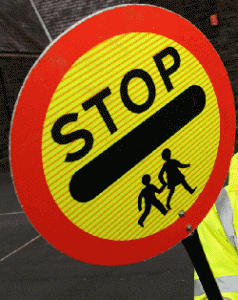
Author:
Robin Roberts
Road safety has reached the end of the road under the council spending cull, says IAM
Local councils in England slashed their road safety budgets by 15 per cent or £23 million last year compared to average spending cuts of just six per centfor other council services.
Road safety charity the Institute of Advanced Motorists says it includes cuts to services such as rehabilitation courses for motoring offenders, training and information for young drivers, safe routes to schools schemes and school crossing patrols. The research also shows that over half of English councils cut their spending on road safety and traffic management by more than ten per cent. Of the 152 councils contacted, 81 replied.
Spending on road safety saw huge variations. For example, London’s Camden Council cut road safety spending by more than 70 per cent (£4million), despite the fact that road casualties have increased by 10.6 per cent there since 2006. More than 100 people were killed or seriously injured on Camden’s roads in 2010. At the same time, neighbouring Islington Council increased funding for road safety and traffic management by £134,000.
Spending on roads also varied. Thirty councils (37 per cent) cut spending on road maintenance by more than ten per cent, but generally, road maintenance fared well with an overall increase of 0.37 per cent. For example, Northumberland Council cut road maintenance by 63 per cent while Blackpool Council increased it by 34 per cent.
IAM chief executive Simon Best said, “In difficult times, councils can be more innovative and flexible in their approach by working with the voluntary and private sectors to provide the services they can no longer afford.
“Austerity is forcing councils to make difficult choices, but the fact that these cuts only represent the first year of savings under the coalition’s spending review is deeply worrying. Cutting road safety so hard makes no sense. The average wage of a lollipop lady is £3,000 a year while the cost of each road fatality is £1.6 million. So the returns on investment are huge.
“Cuts of this scale risk lives as well as the UK’s table-topping status as the best in the world for road safety. The government needs to bring back casualty reduction targets so that councils make road safety a priority.
“I’m also concerned that patchy spending on maintenance will not keep pace with our crumbling roads.
The full report – The end of the road: Local investment in road safety in England – is published today by the IAM.
Road safety should be considered when drawing up company car policy to reduce employees exposure to risks as well as third parties and business car driving advice should be readily available to those who use company vehicles or their own on business.







